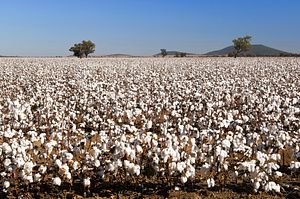Uzbekistan is back on the bottom rung of the U.S. State Department’s annual Trafficking in Persons (TIP) report after being upgraded last year for “making significant efforts” to comply with “minimum standards for the elimination of trafficking.” Turkmenistan has also been forced to the bottom rung, after maxing out the number of years State could waive the downgrade mandated in the face of no measurable improvements.
The TIP report catalogues modern slavery–sex trafficking, forced labor, debt bondage, domestic servitude, child soldiers–across the world and the efforts of states to deal with various forms of human trafficking. The report places countries into four groups: Tier 1 countries have acknowledged the problem of trafficking and are taking steps to combat it, whereas Tier 3 countries are not making significant efforts to combat trafficking. The Tier 2 Watch List is a bridge which indicates a state does not meet minimum requirements (as set out in the The Trafficking Victims Protection Act, from which the criteria for the report originate), but is making efforts to do so.
Technically, a country that has been ranked on the Tier 2 Watch List for two consecutive years and would otherwise be ranked on the Watch List in the third year must be automatically downgraded. A 2008 amendment to the Trafficking Victims Protection Act allows for the secretary of state to waive the downgrade for two consecutive years. After those two additional years, the country must either be upgraded to Tier 2–meaning progress has, indeed, been made–or downgraded to Tier 3.
Uzbekistan and Turkmenistan–the world’s fifth and seventh largest exporters of cotton, respectively–have a long history of forced labor practices. While the rates of child labor have fallen as a result of immense international pressure, the burden has merely shifted to adults who are nonetheless coerced into the fields.
According to the Cotton Campaign–which hailed the downgrades–forced labor during the cotton harvest is “state-orchestrated, systematic, and widespread” in both Uzbekistan and Turkmenistan.
The report notes that in Turkmenistan, in order to “meet government-imposed quotas for the cotton harvest, local authorities require university students, private-sector institutions, soldiers, and public sector workers (including teachers, doctors, nurses, and others) to pick cotton without payment and under the threat of penalty.” In Uzbekistan the story is much the same, with the State Department reporting that “[s]ome adults who refuse to pick cotton, do not pay for a replacement worker, or do not fulfill their daily quota might have been threatened with, or faced the loss of, social benefits, termination of employment, or harassment.” Moreover, mobilization of high school aged students remained “endemic.”
Looking at the pattern of upgrades and downgrades, this year’s downgrade of Uzbekistan is significant in a sense. It was not forced by policy–as Turkmenistan’s downgrade after four years on the Watch List seems to have been–but by circumstance. It is, at the very least, a visible acknowledgement that Uzbekistan has not made “significant efforts” to deal with forced labor.
Paradoxically, the Uzbek government has moved toward complying with international labor standards–allowing, for example, the International Labor Organization to monitor the 2015 harvest for child labor and conduct surveys with the World Bank–while also severely harassing independent monitors. This semblance of improvement (or rather of efforts to improve) is what led to Uzbekistan’s upgrade in 2015; the exposure of that as farce prompted the 2016 downgrade.
The ordeals of Elena Urlaeva are illustrative in this sense. The prominent activist has been arrested several times, beaten and assaulted by Uzbek authorities. Other activists tell similar stories of harassment, assault, and arrest for poking around cotton fields, passing out fliers with ILO information, and taking pictures. There have been countless accounts of Uzbeks being coerced into the fields–at least those unable to pay a replacement worker to take their place. Meanwhile, revenue from cotton does not pour directly into the state budget but instead is diverted to a special fund (the financial nuances of Uzbekistan’s cotton sector were outlined in a 2014 report published by the Open Society Foundation)
While the advocates gathered together by the Cotton Campaign applaud the message sent by State’s downgrade of the two Central Asian countries, rankings only scratch the surface of what needs to be done to address the issue of forced labor.

































